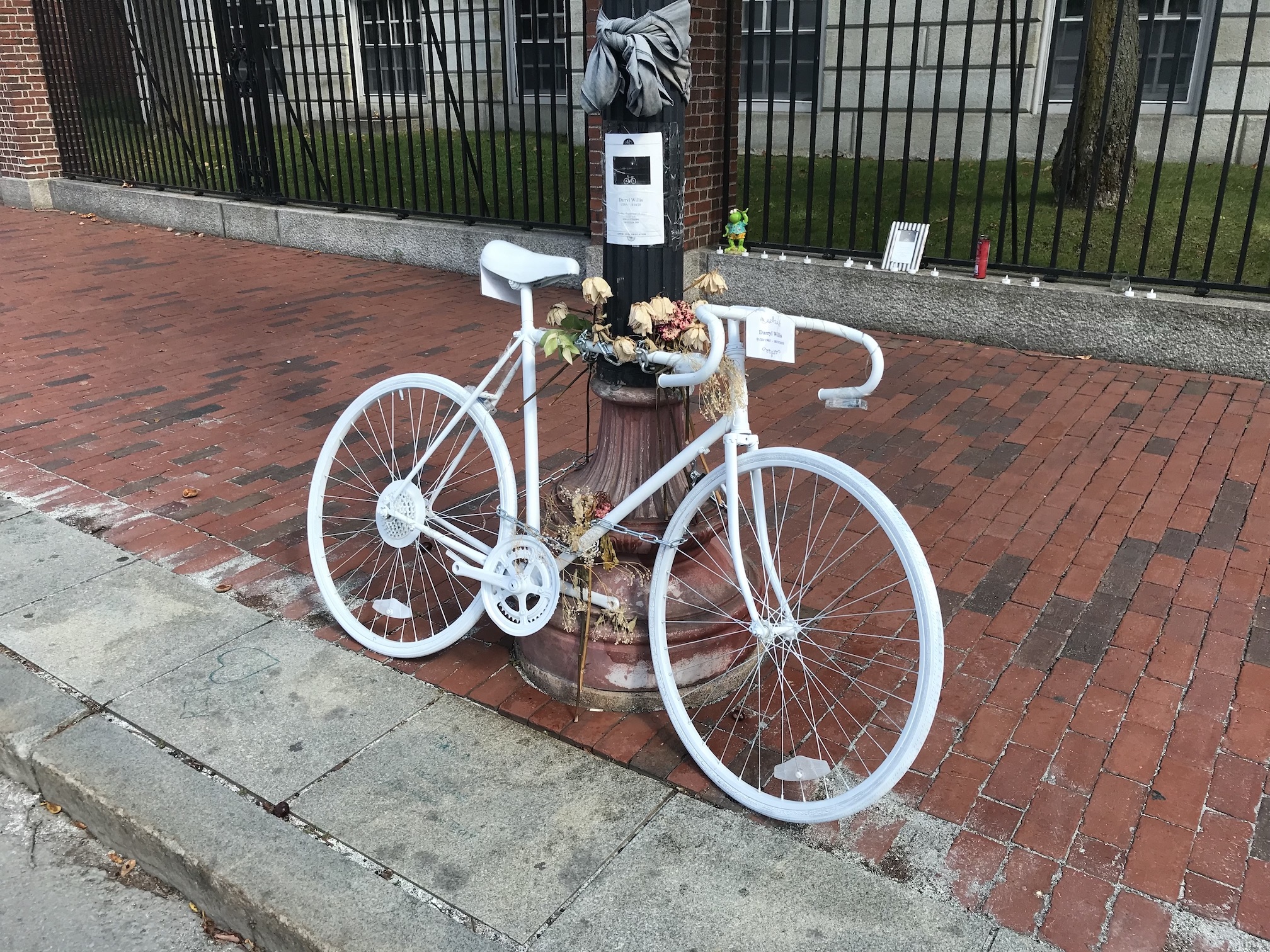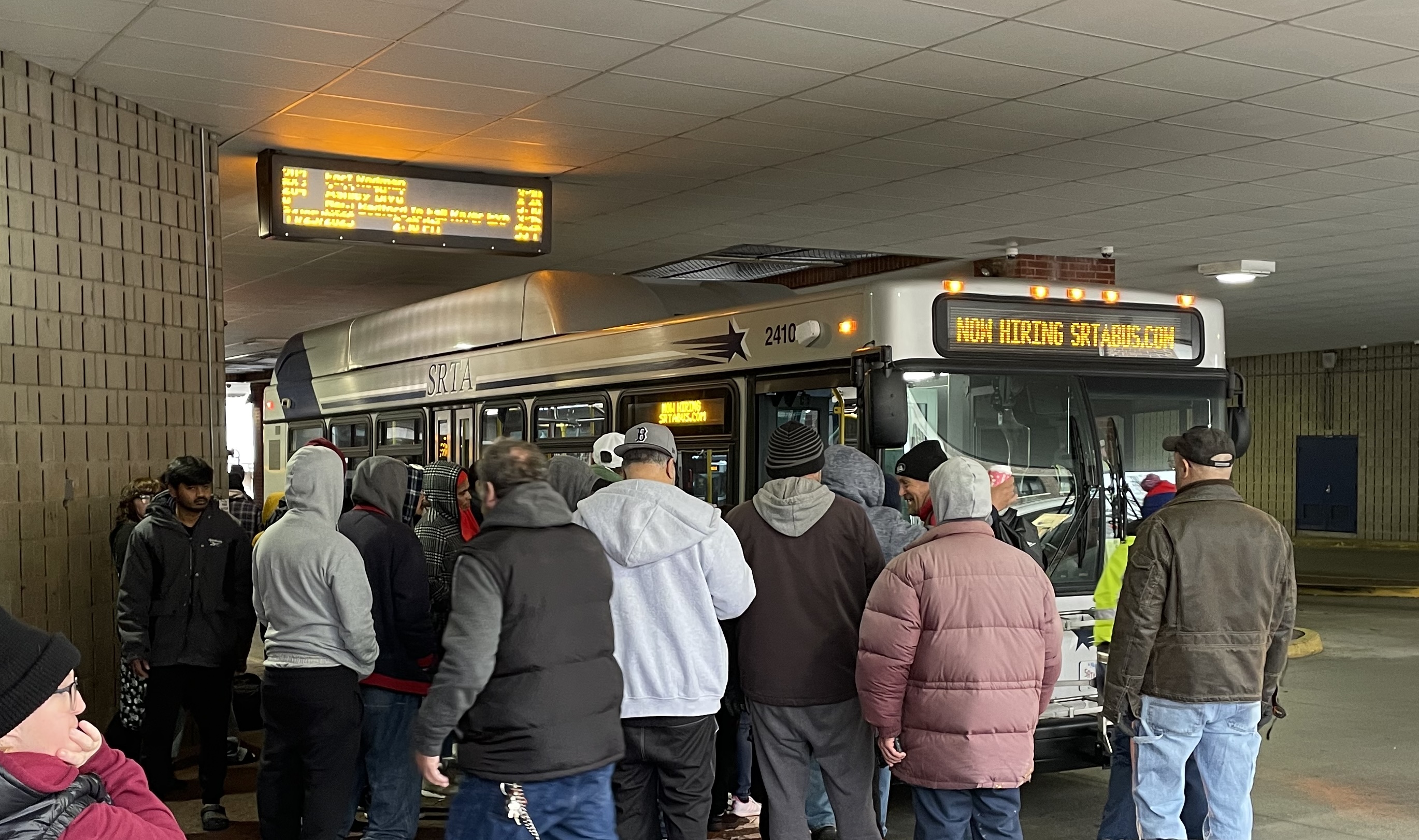
Update: This story was originally published on Dec. 23, 2022. On Tuesday Dec. 27, the House and Senate finally passed an amended version of An Act to Reduce Traffic Fatalities during informal sessions. Read the details here.
A roadway safety bill with near-unanimous support from lawmakers is at risk of dying in the New Year because House and Senate leaders have not allowed a final vote on the bill.
House bill 5103, "An Act to Reduce Traffic Fatalities," would establish a suite of new regulations intended to improve safety on Massachusetts roadways, including:
- Requiring drivers to maintain a safe passing distance when they pass vulnerable users on roadsides, including construction workers, emergency responders, and people walking or biking.
- Requiring trucks owned by the state or its contractors to install life-saving equipment including side guards, intended to prevent people on foot or bikes from being run over in side-on collisions, and backup cameras and convex mirrors to reduce blind spots.
- Allowing municipalities to establish lower speed limits on some state-owned roadways.
Policies like these have been proven to save lives in other jurisdictions, and the legislature's delays in putting the legislation over the finish line are putting peoples' lives at unnecessary risk.
In the past week alone, one truck driver killed a man in Franklin last Friday, and another driver struck and killed a person riding his bike on Main Street in Acushnet on Thursday.
Various iterations of the bill have been proposed in the legislature since 2011.
This year's version of the legislation looked poised to finally become law on September 12, when both chambers agreed to the legislation in voice votes with no apparent opposition.
On September 21, though, Governor Baker returned the bill to the House with a letter that expressed support for many of the bill's proposals, but requested several amendments.
The Governor proposed simplifying the "safe passing distance" requirement, and further requested that the state be allowed to maintain control over speed limits on state-owned roadways at least until next year, when a new Manual on Uniform Traffic Control Devices is expected to update the federal government's speed limit regulations.
According to the Massachusetts Constitution, the Governor has "the right to return (a bill) to the branch of the general court in which it originated with a recommendation that any amendment or amendments specified by him be made therein."
The general court, or legislature, can then adopt the Governor's amendments or propose its own, then vote to re-enact the bill to send it back to the Governor, who "shall have no right to return the same a second time with a recommendation to amend."
In early November, the House approved a new amendment, sponsored by Rep. William Straus of Mattapoisett, that sought to address the Governor's concerns.
The amended bill would require a consistent 4-foot passing distance for vulnerable users on all roadways, and made some adjustments to its language regarding speed limits on state-owned roadways.
But nearly two months have passed since then, and neither the House nor the Senate have taken any further action on the bill.
To become law, the bill will need to pass in the full House and Senate before the new legislature gets sworn in on January 4, 2023, and then get the Governor's signature.
That means that, in spite of extremely broad support for the bill, "An Act to Reduce Traffic Fatalities" will suffer its own fatality unless House Speaker Ron Mariano and Senate President Karen Spilka allow a vote on the legislation soon.
StreetsblogMASS reached out to Speaker Mariano, Senate President Spilka, and bill co-sponsors Rep. Michael Moran (Allston-Brighton), Rep. Adrian Madaro (East Boston), Rep. William Straus (Mattapoisett), and Senate President Pro Tempore William Brownsberger (Belmont) to ask why the bill is being delayed.
Only Senator Brownsberger responded, writing via email on Thursday afternoon that "detailed technical negotiations have been underway and are now complete as of this morning. The bill should move next week."
Both the House and Senate are scheduled to hold their final informal sessions of the year next Tuesday.






